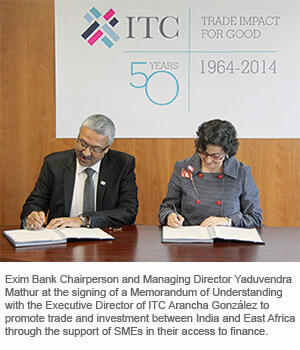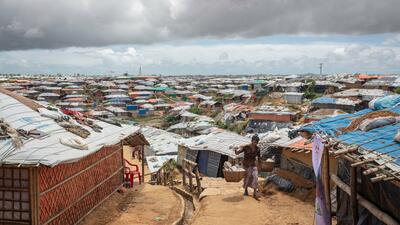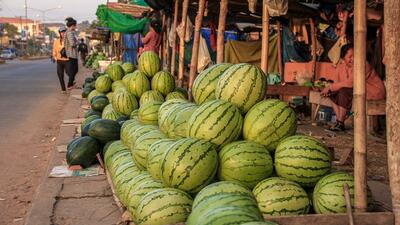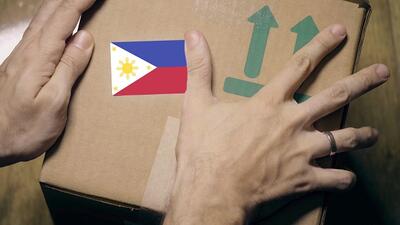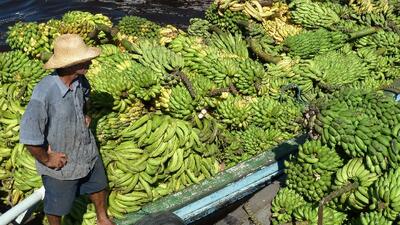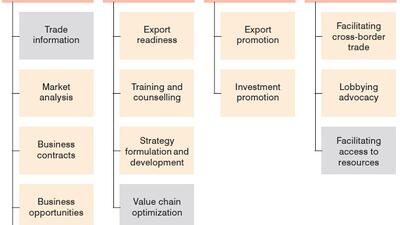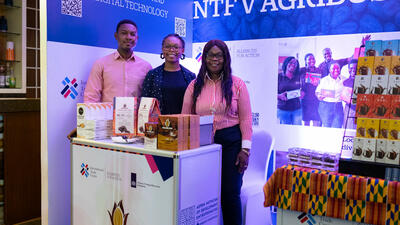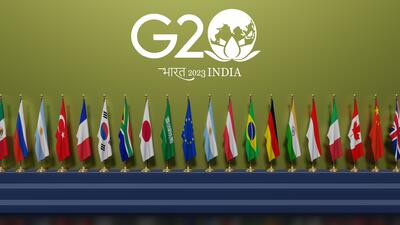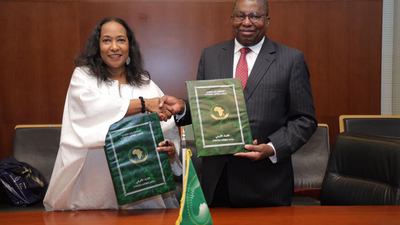Banking on collaboration between India and Africa
Earlier this year, the Export-Import (Exim) Bank of India signed a partnership agreement with the International Trade Centre (ITC) aimed at strengthening collaboration between the two organizations. The focus will be on increasing enterprise and sector competitiveness, promoting capacity building in trade intelligence, supporting business linkages between India and other countries, and improving the business environment in those countries. In addition, ITC and Exim Bank will cooperate on Supporting India’s Trade Preferences for Africa’s Poor (SITA), a six-year project aimed at promoting exports from five East African countries – Ethiopia, Kenya, Rwanda, Uganda , and the United Republic of Tanzania.
Q: Why is the Supporting India’s Trade Preferences for Africa’s Poor (SITA) project worth implementing?
A: This project brings in a lot of information that Exim Bank can share with the private sector in India. We are using much of the published data and many of the business maps that ITC produces, so we will be able to share this information with our Indian companies as well as in the five African partner countries. Through this blending of skills and competences, we can really deliver export competitiveness.
Q: How important is the role of the private sector in ensuring the success of SITA?
A: The private sector is absolutely essential to this project, because the ultimate goal is to strengthen private-sector development in these five countries. At present, the private sector often faces obstacles because of policy issues. What the SITA project will bring to the table is informed judgment, that can help policymakers to see the greater potential for trade between India and these five countries - not only on a limited basket of goods, but in services, too.
Q: What are the biggest challenges to trade faced by small and medium-sized enterprises (SMEs)?
A: Non-tariff barriers, in no small measure, are one of the biggest challenges. ITC comes with a lot of hand-holding and a lot of market-advisory services on the policy front, and the blend of skills and strengths of our institutions would really support SMEs in going global. It is one of the biggest challenges for Africa: to see their SMEs ramp up their growth, and get access to finance so that they can become bigger players in the global value chain.
Q: How important is access to finance for the development of SMEs?
A: One of the real barriers to enhancing trade is access to finance. Exim Bank and ITC, along with other stakeholders, will be able to support SMEs to access not only technology, but finance as well. Investments will be made by Indian SMEs in these five [African] countries, and private-sector development would be enhanced.
Q: What are the difficulties of financing companies when they need the money to grow, but have no collateral?
A: SME financing has been hamstrung because of a lack of collateral. We have experience in working with competency as collateral. For example, a lot of potential exists in Africa’s IT sector. We can encourage the IT sector to develop in these five African countries under SITA. There’s also discussion on film financing in Nigeria, where we can share the experience that we have. These are challenging areas, and we have to move carefully. But definitely the potential is immense.
Exim Bank will work with partners – trade-support institutions, industry associations – to identify how they can support entrepreneurship. Youngsters all want jobs, but they could also become entrepreneurs. Something more has to be done so that more people go into entrepreneurship. That’s a big challenge, not only for Africa, but even for India.
Angel funding is available, but there is not much venture debt available. So that’s one area where more work has to be done. I think that, under SITA, we will fine-tune how we approach the issue of financing where there is no collateral. With partners on the ground, I’m sure it can and will be done.
Q: India is an emerging market but it’s also looking to support other emerging markets. How do you balance this?
A: We are all globalized now, and nobody can afford to be an island. South-South cooperation can - and has to - deliver. After the financial crisis, the winds are easing and more partnerships are being forged. ITC and other institutions are helping a lot of these partnerships to rise to the next level.
Q: How does a partnership with ITC support Exim Bank’s goal of fostering foreign trade and investment in India?
A: This project, which is one of the biggest recent ITC interventions, is a very exciting development. Currently India and the five African countries of Ethiopia, Kenya, Rwanda, Uganda, and the United Republic of Tanzania have a negative balance, since there are more exports from India to these African countries than in the reverse direction. This project would really flow into investments by Indian companies in these five countries, and also into transfers of technology.
Q: How is Exim Bank partnering with other institutions for trade development?
A: There are many financial institutions and export-import banks that are now connected. For example, we are lending more than US$ 6 billion through lines of credit to Africa. These project investments are all about supporting capacity building. I’m sure that the future is for South-South cooperation where export-import banks, multilateral banks and the UN system can together deliver on promoting better global trade.





